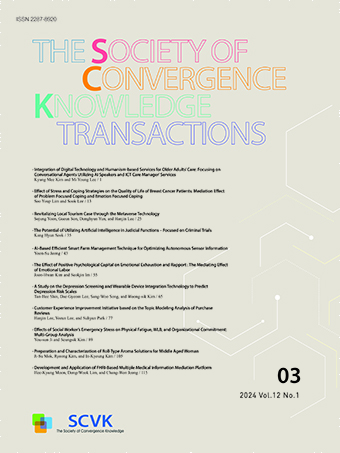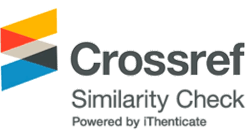Research Article
Abstract
References
Information
본 논문은 코로나19 사태로 인해 소비자들의 태도와 행동이 급격히 변화하고 있는 상황에서, 구독서비스 이용자가 지각하는 개인화 서비스 및 맞춤화 서비스가 고객만족 및 구매의도에 어떤 영향을 미치는지를 살펴보았다. 그리고 이러한 영향관계에서 Z세대와 밀레니얼세대 간 차이가 있는지 확인하는 것을 목적으로 한다. 구독서비스 이용자 242명으로부터 수집한 자료를 구조방정식모형(SEM)으로 검증하였다. 분석결과, 첫째, 개인화 서비스와 맞춤화 서비스는 모두 고객만족에 유의한 정(+)의 영향을 미치는 것으로 나타났다. 둘째, 고객만족은 구매의도에 긍정적인 영향을 미치는 것으로 나타났다. 셋째, 조절변수로 Z세대와 밀레니얼세대 두 집단에서 모두 개인화 서비스, 맞춤화 서비스와 고객만족 간의 관계에 대하여 조절효과가 없는 것으로 나타났다. 본 논문은 실무적으로 구독서비스를 제공하는 데 있어, 소비자 특성을 고려한 서비스전략 수립과 향후 이 분야를 연구하는 학계에 기초자료로 활용되는데 시사점을 제시하였다.
This paper examined how the personalized service and customized service perceived by subscription service users affect customer satisfaction and purchase intention in situation where consumers’ attitudes and behaviors are rapidly changing due to the COVID- 19 incident. And it aims to check whether there is a difference between Generation Z and Millennial in this influence relationship. The data collected from 242 users of the subscription service were verified with a structural equation modeling (SEM). As a result of analysis, first, it was found that both personalized service and customized service had a significantly positive effect on customer satisfaction. Second, it was found that customer satisfaction had a positive effect on purchase intention. Third, it was found that there was not a moderating effect on the relationship between personalized service, customized service and customer satisfaction in both groups of Generation Z and Millennial as a moderator variable. This paper presents implications for establishing a service strategy that considers consumer characteristics in providing subscription services in a practical way, and using them as basic data in the academics studying this field in the future.
- D. D. Rucker, A. D. Galinsky, and D. Dubois, "Power and consumer behavior: How power shapes who and what consumers value", Journal of Consumer Psychology, Vol. 22, No. 3, pp. 352-368, 2012.https://doi.org/10.1016/j.jcps.2011.06.001
- N. F. Awad, and M. S. Krishnan, "The personalization privacy paradox: an empirical evaluation of information transparency and the willingness to be profiled online for personalization", MIS Quarterly, pp. 13-28, 2006.https://doi.org/10.2307/25148715
- https://biz.chosun.com/site/data/html_dir/2020/12/08/2020120801815.html
- https://www.samsungpop.com/mobile/invest/poptv.do?cmd=fileDown&FileNm=uma_191018.html
- T. Chen, K. Fenyo, S. Yang, and J. Zhang, "Thinking inside the subscription box: New research on e-commerce consumers", McKinsey & Company, pp. 1-9, 2018.
- 정다희, "전자책 구독 서비스 이용 요인의 상관관계에 관한 연구", 한국디지털콘텐츠학회 논문지, 제21권 제10호, pp.1791-1800, 2020.https://doi.org/10.9728/dcs.2020.21.10.1791
- S. W. Kim, "A study on the public information service management model", Collaborative Study Series, Vol. 11, No. 12. pp. 43-50, 2011.
- 유연주, 여정성, "소비자의 상품큐레이션서비스 이용에 관한 탐색적 연구", 소비자학연구, 제31권 제4호, pp.31-56, 2020.https://doi.org/10.35736/JCS.31.4.2
- 이진, 최은주, "화장품 소비욕구가 맞춤형화장품 구매의도에 미치는 영향 - 구매동기를 매개효과로 ", 한국웰니스학회지, 제15권 제4호, pp.43-58, 2020.https://doi.org/10.21097/ksw.2020.11.15.4.43
- 마리야오, 권상희, "개인화 서비스요인이 사용자의 지속적인 이용의도영향에 미치는 연구 : 유튜브의 기술수용모델을 중심으로", 한국언론정보학보, 제99권, pp.65-95, 2020.https://doi.org/10.46407/kjci.2020.02.99.65
- P. F. Nunes, and A. Kambil, "Personalization? No thanks", Harvard Business Review, Vol. 79, No. 4, pp. 32-33, 2001.
- S. W. Lee, H. Y. Kim, and J. H. Song, "The effect of personalized email messages on consumers' perceived interactivity, purchase intention and loyalty", Korea Customer Satisfaction Management Association, Vol. 13, No. 3, pp. 85-100, 2011.
- 김선민, 김혜영, 송지희, "리타게팅이란 무엇이며, 어떻게 사용하는 것이 효과적일까?: 메시지와 상품종류의 조절효과를 중심으로", 소비문화연구, 제19권 제1호, pp.159-178, 2016.https://doi.org/10.17053/jcc.2016.19.1.008
- T. B. White, D. L. Zahay, H. Thorbjørnsen, and S. Shavitt, "Getting too personal: Reactance to highly personalized email solicitations", Marketing Letters, Vol. 19, No. 1, pp. 39-50, 2008.https://doi.org/10.1007/s11002-007-9027-9
- J. E. Lee, M. S. Shin, and J. E. Woo, "A study of factors affecting mobile widget-based personalized services", Journal of Information Technology Services, Vol. 9, No. 2, pp. 21-42, 2010.
- F. De Keyzer, N. Dens, and P. De Pelsmacker, "Is this for me? How consumers respond to personalized advertising on social network sites", Journal of Interactive Advertising, Vol. 15, No. 2, pp. 124-134, 2015.https://doi.org/10.1080/15252019.2015.1082450
- S. Kalyanaraman, and S. S. Sundar, "The psychological appeal of personalized content in web portals: Does customization affect attitudes and behavior?", Journal of Communication, Vol. 56, No. 1, pp. 110-132, 2006.https://doi.org/10.1111/j.1460-2466.2006.00006.x
- J. H. Song, and G. M. Zinkhan, "Determinants of perceived web site interactivity", Journal of Marketing, Vol. 72, No. 2, pp. 99-113, 2008.https://doi.org/10.1509/jmkg.72.2.99
- S. M. Davis, "From "future perfect": Mass customizing", Planning review, 1989.https://doi.org/10.1108/eb054249
- N. Arora, X. Dreze, A. Ghose, J. D. Hess, R. Iyengar, B. Jing, and S. Sajeesh, "Putting one-to-one marketing to work: Personalization, customization, and choice", Marketing Letters, Vol. 19, No. 3-4, p. 305, 2008.https://doi.org/10.1007/s11002-008-9056-z
- J. Vesanen, "What is Personalization? A Conceptual Framework", European Journal of Marketing, Vol. 41, No. 5-6, pp. 409-418, 2007.https://doi.org/10.1108/03090560710737534
- R. K. Chellappa, and R. G. Sin, "Personalization versus privacy: An empirical examination of the online consumer's dilemma", Information Technology and Management, Vol. 6, No. 2-3, pp. 181-202, 2005.https://doi.org/10.1007/s10799-005-5879-y
- 김상욱, "공공행정서비스의 맞춤화 구현방안 연구", 디지털융복합연구, 제14권 제8호, pp.57-67, 2016.https://doi.org/10.14400/JDC.2016.14.8.57
- G. J. Udo, K. K. Bagchi, and P. J. Kirs, "An assessment of customers'e-service quality perception, satisfaction and intention", International Journal of Information Management, Vol. 30, No. 6, pp. 481-492, 2010.https://doi.org/10.1016/j.ijinfomgt.2010.03.005
- 김하연, "패션제품 개인화 서비스가 소비자의 행복감에 미치는 영향-커스터마이제이션과 큐레이션을 중심으로", 박사학위논문, 서울대학교 대학원, 2018.
- 유소은, 홍일유, 김태하, 차훈상, "큐레이션 쇼핑이 온라인 구매행동에 미치는 영향", Entrue Journal of Information Technology, 제15권 제1호, pp.123-134, 2016.
- R. L. Oliver, "A cognitive model of the antecedents and consequences of satisfaction decisions", Journal of Marketing Research, Vol. 17, No. 4, pp. 460-469, 1980.https://doi.org/10.1177/002224378001700405
- J. F. Engel, and R. D. Blackwell, "Consumer behavior", Dryden press, 1982.
- J. W. Newman, and R. A. Werbel, "Multivariate analysis of brand loyalty for major household appliances", Journal of Marketing Research, Vol. 10, No. 4, pp. 404-409, 1973.https://doi.org/10.1177/002224377301000408
- R. W. Hamilton, R. T. Rust, and C. S. Dev, "Which features increase customer retention?", MIT Sloan Management Review, Vol. 58, No. 2, p. 79, 2017.
- R. N. Bolton, and K. N. Lemon, "A dynamic model of customers' usage of services: Usage as an antecedent and consequence of satisfaction", Journal of Marketing Research, Vol. 36, No. 2, pp. 171-186, 1999.https://doi.org/10.1177/002224379903600203
- M. Moore, "Interactive media usage among millennial consumers", Journal of Consumer Marketing, Vol. 29, No. 6, Emerald Publishing Limited, pp. 436-444, 2012.https://doi.org/10.1108/07363761211259241
- 김나경, "LGERI 리포트: 2011년 대한민국 20대의 가치관과 라이프스타일", LG Business Insight, 제17권, 2011.
- 최인영, "Z세대를 위한 커뮤니케이션 디자인 학문의 교육목표에 관한 연구", 한국디자인문화학회지, 제21권 제3호, pp.675-683, 2015.
- 양연지, 김기옥, "Z세대와 밀레니얼세대의 스마트폰활용패턴에 따른 잠재프로파일분석", 소비자학연구, 제31권 제4호, pp.159-182, 2020.https://doi.org/10.35736/JCS.31.4.7
- U. Gretzel, and D. R. Fesenmaier, "Persuasion in recommender systems", International Journal of Electronic Commerce, Vol. 11, No. 2, pp. 81-100, 2006.https://doi.org/10.2753/JEC1086-4415110204
- D. J. Xu, "The influence of personalization in affecting consumer attitudes toward mobile advertising in China", Journal of Computer Information Systems, Vol. 47, No. 2, pp. 9-19, 2006.
- N. Franke, P. Keinz, and C. J. Steger, "Testing the value of customization: When do customers really prefer products tailored to their preferences?", Journal of Marketing, Vol. 73, No. 5, pp. 103-121, 2009.https://doi.org/10.1509/jmkg.73.5.103
- E. Anderson, and C. Fornell, "Customer Satisfaction Research Prospectus", pp. 241-268 in R. T. Rust and R. L. Oliver (Eds.) Service Quality: New Directions in Theory and Practice. Thousand Oaks, CA: Sage Publications, 1994.https://doi.org/10.4135/9781452229102.n11PMid:8026627
- S. B. MacKenzie, J. L. Richard, and E. B. George, "The role of attitude toward the ad as a mediator of advertising effectiveness: A test of competing explanations", Journal of Marketing Research, Vol. 23, No. 2, pp. 130-143, 1986.https://doi.org/10.1177/002224378602300205
- J. Nunnally, "Psychometric Theory (2nd ed.)", New York, NY: McGraw-Hill, 1978.
- J. C. Anderson, and D. W. Gerbing, "Structural equation modeling in practice: A review and recommended two-step approach", Psychological Bulletin, Vol. 103, No. 3, pp. 411-423, 1988.https://doi.org/10.1037/0033-2909.103.3.411
- L. T. Hu, and P. M. Bentler, "Cutoff criteria for fit indexes in covariance structure analysis: Conventional criteria versus new alternatives", Structural Equation Modeling: A Multidiscipinary Journal, Vol. 6, No. 1, pp. 1-55, 1999.https://doi.org/10.1080/10705519909540118
- M. R. Mullen, "Diagnosing measurement equivalence in cross-national research", Journal of International Business Studies, Vol. 26, No. 3, pp. 573-596, 1995.https://doi.org/10.1057/palgrave.jibs.8490187
- A. L. Montgomery, S. Li, K. Srinivasan, and J. C. Liechty, "Predicting online purchase conversion using web path analysis", Marketing Science, Vol. 23, No. 4, pp. 579-595, 2004.https://doi.org/10.1287/mksc.1040.0073
- 이항, 김준환, "구독서비스를 통한 HMR 제품 구매에 있어 소비가치가 소비자태도에 미치는 영향", 디지털융복합연구, 제18권 제9호, pp.71-79, 2020.
- https://us.epsilon.com/pressroom/new-epsilon-research-indicates-80-of-consumers-are-more-likely-to-make-a-purchase-when-brands-offer-personalized-experiences
- 이승준, 김영준, "위치기반서비스 특성이 매장방문 의도에 미치는 영향에 관한 연구 - 개인화 서비스 조절효과 중심으로 -", 마케팅관리연구, 제23권 제2호, pp.19-43, 2018.
- Publisher :The Society of Convergence Knowledge
- Publisher(Ko) :융복합지식학회
- Journal Title :The Society of Convergence Knowledge Transactions
- Journal Title(Ko) :융복합지식학회논문지
- Volume : 9
- No :1
- Pages :17-28
- DOI :https://doi.org/10.22716/sckt.2021.9.1.003




 The Society of Convergence Knowledge Transactions
The Society of Convergence Knowledge Transactions







